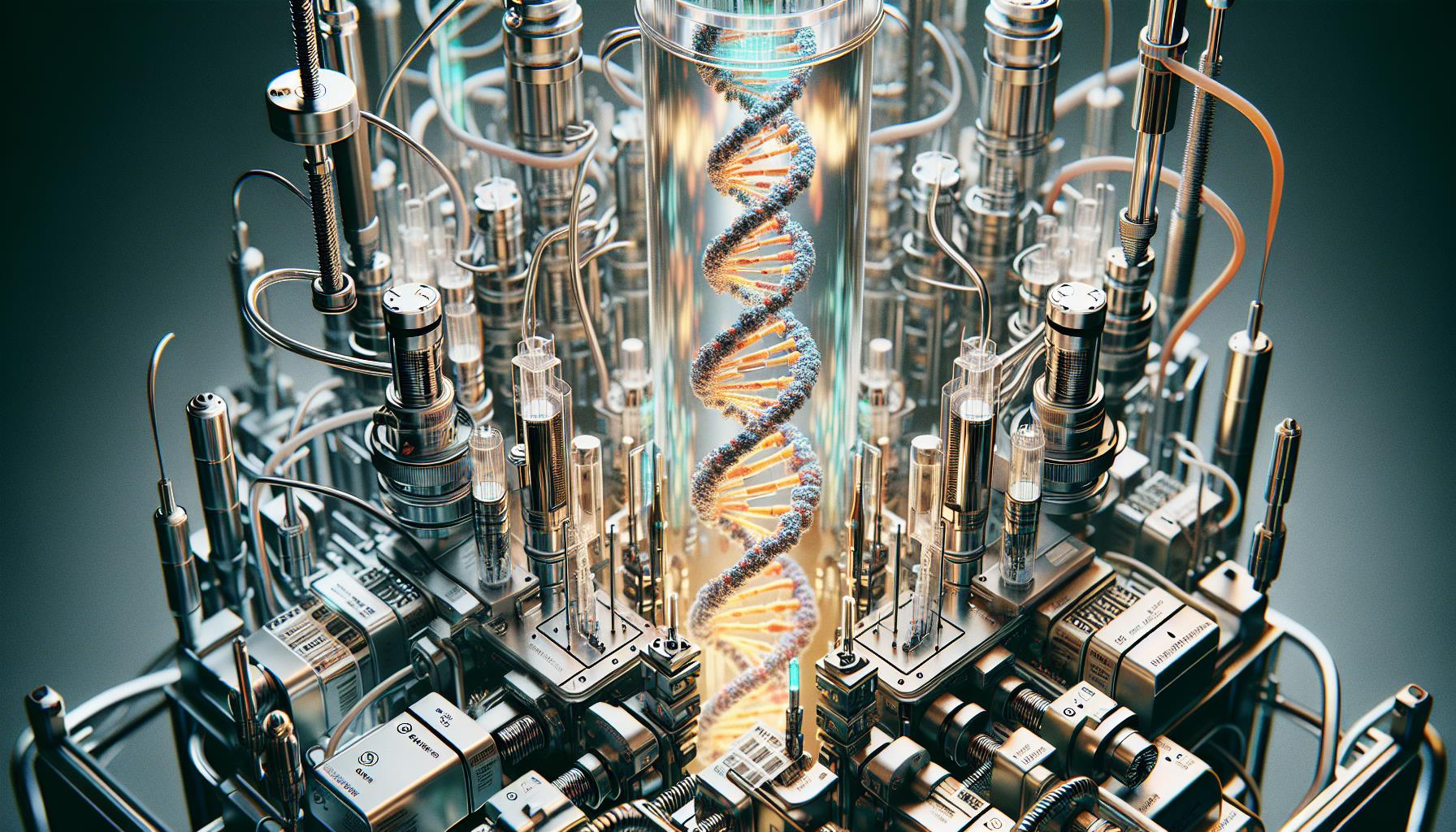Gene editing represents a monumental leap in biotechnological innovation, allowing scientists to modify an organism’s DNA with unprecedented precision. Central to this revolution is the CRISPR (Clustered Regularly Interspaced Short Palindromic Repeats) technology. This method, which has transformed the field over the past decade, uses a protein called Cas9 to target and modify specific genetic sequences. CRISPR’s potential applications range from treating genetic disorders to improving crop resilience, making it one of the most promising scientific advancements of our time.
The journey of CRISPR began over a decade ago, with its discovery as a natural defense mechanism in bacteria. Since then, researchers have harnessed its capabilities, adapting it for use in a plethora of organisms. The technology’s ease of use and accuracy makes it a cornerstone technique in modern genetic research. CRISPR’s role is likened to that of a molecular scissor, capable of snipping the DNA at chosen locations, where repairs or edits can be made.
Generative AI’s Role in Advancing CRISPR
Generative AI, a subset of artificial intelligence focused on generating new content and ideas, is now lending its capabilities to enhance CRISPR technologies. By simulating countless potential genetic modifications, AI can predict outcomes and optimize CRISPR’s gene-editing processes. This partnership between AI and CRISPR is poised to streamline the workflow of genetic engineering, potentially reducing the trial and error aspect that has characterized much of the research until now.
The potential of Generative AI in CRISPR applications lies in its ability to analyze vast datasets, learning from each iteration to refine its predictive models. This makes it an indispensable tool for researchers seeking to understand the complex relationships between genetic sequences and phenotypic outcomes. The integration of Generative AI with CRISPR is not just about speed but also about the precision of edits, ultimately aiming to minimize unintended effects on the genome.
The Future of Gene Editing
As we look towards the future, the synergy of Generative AI and CRISPR promises a new era in gene editing—one marked by increased efficiency and tailored therapeutic interventions. The potential for addressing genetic disorders that were once thought incurable is within reach, with research already underway to treat conditions like sickle cell anemia through CRISPR-mediated gene correction.
Moreover, the agricultural sector stands to benefit significantly from these advances. Gene-edited crops can be developed to withstand environmental stressors such as drought and pests, thereby enhancing food security globally. The ethical implications of such powerful technology are immense, prompting ongoing discussions regarding governance and regulation to ensure responsible use.
Ethical Considerations and Regulatory Landscape
As with any groundbreaking scientific advancement, CRISPR technology brings with it a range of ethical considerations. The prospect of gene editing touches on foundational questions of human identity, enhancement, and biodiversity conservation. Regulatory bodies worldwide are grappling with these issues, aiming to strike a balance between fostering innovation and protecting against potential abuses.
The regulatory landscape, while still evolving, tends toward caution and rigorous oversight, particularly in the realm of germline editing—which has implications for future generations. The role of Generative AI in this domain may help in evaluating risks more accurately, ultimately contributing to more informed regulatory frameworks.
Public Perception and Societal Impact
Public perception of CRISPR and Generative AI technologies is mixed, with enthusiasm often tempered by concerns over ethical ramifications. Education and transparent communication from the scientific community are key to addressing misconceptions and fears surrounding gene editing. As these technologies become more embedded in our lives, societal impact is likely to be profound, influencing healthcare, agriculture, and even our conceptions of disease and normalcy.
Positive societal impacts are anticipated, especially in healthcare, where gene editing has the potential to cure inherited diseases and customize treatments for individual genetic makeup. However, the possibility of a societal divide, where access to such technologies is limited to the affluent, raises concerns about genetic equity and universal healthcare.
A New Frontier in Genetics
The convergence of Generative AI with CRISPR technology marks a significant milestone in the field of genetics. By augmenting the precision and predictive power of gene editing, AI is set to accelerate the pace of genetic innovation. The possibilities for enhancing human health and the environment are immense, as long as ethical and regulatory challenges are navigated with foresight and care.
In conclusion, as we reflect on the ten-year journey of CRISPR and its integration with cutting-edge AI, it’s clear that we stand on the cusp of a new frontier. One where rewriting the code of life could become as routine as editing a text document, with the potential to usher in a new chapter in human evolution and ecological stewardship.
